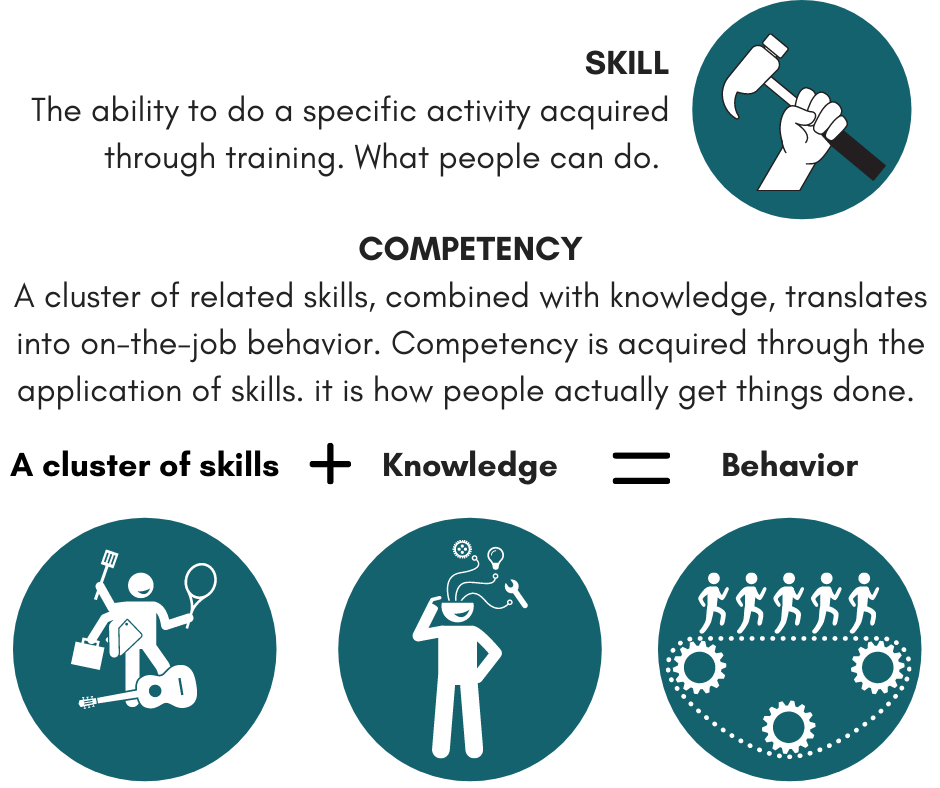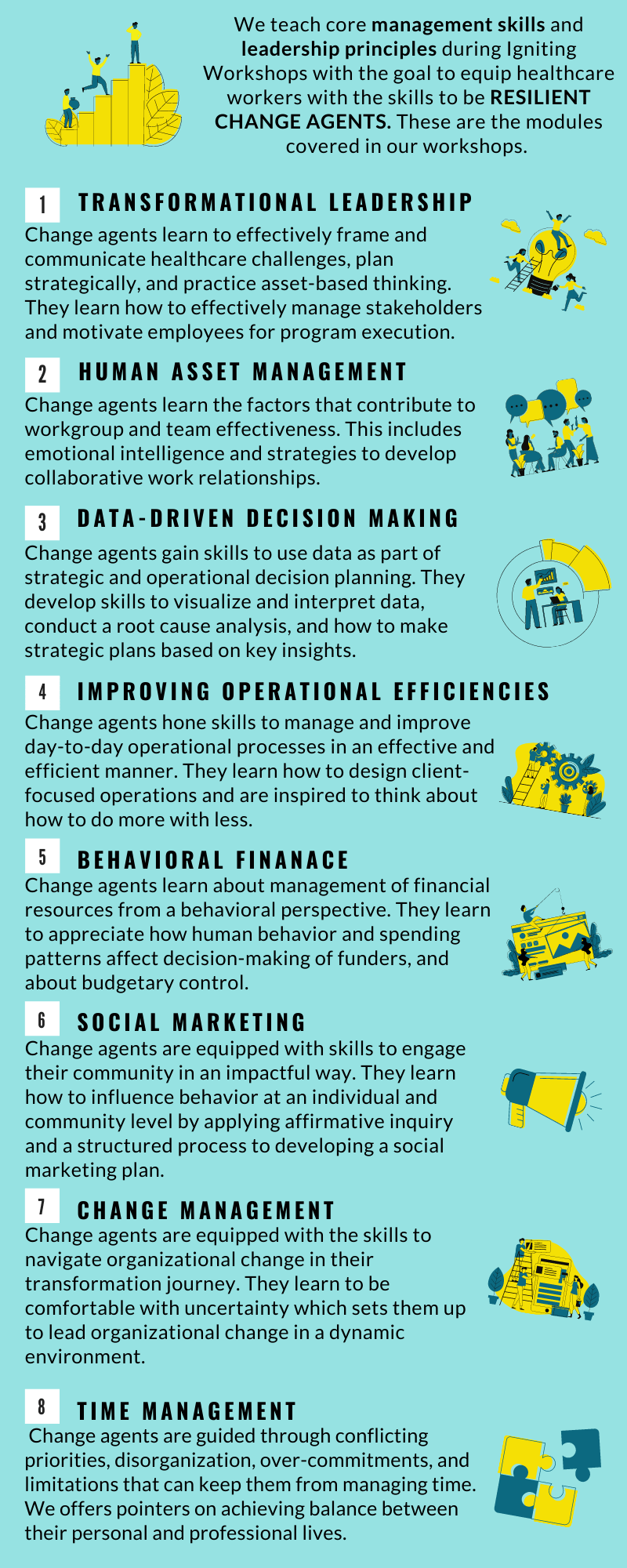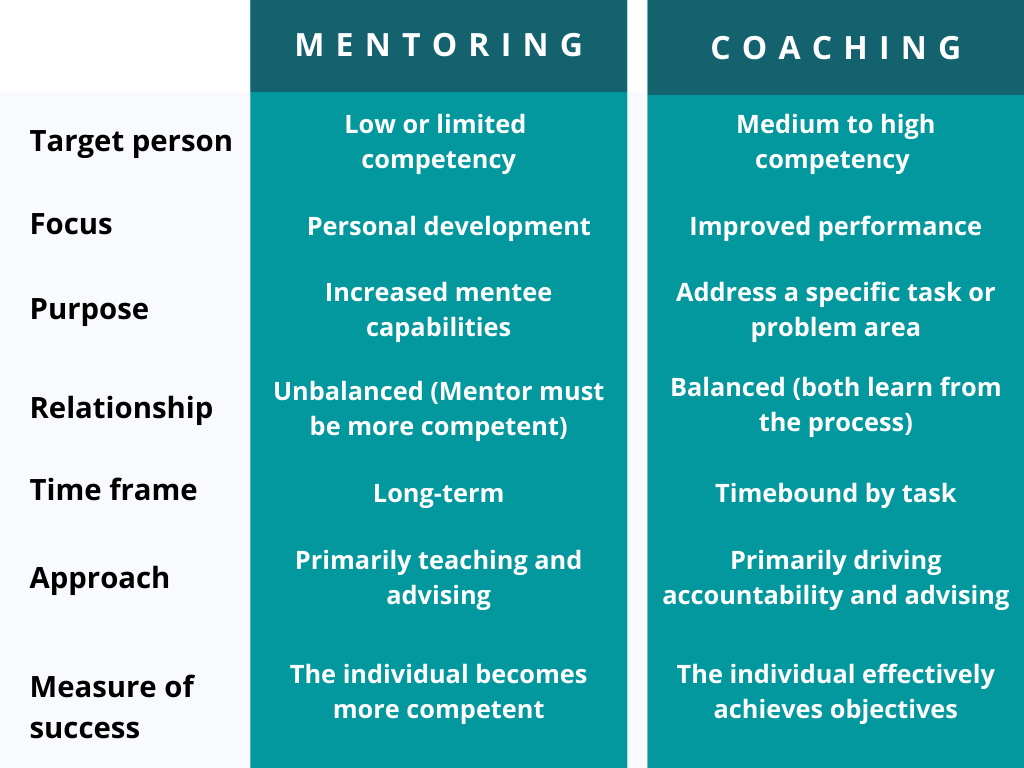Since our inception in 2011, Spark Health Africa has worked with over 1,600 healthcare professionals across seven countries as part of our Transformative Leadership and Culture Change (TLCC) programs. Our key aim has been to engender resilience within the workforce by changing the team-based work culture within Ministries of Health. The TLCC program initially targets district health management teams, subsequently integrating frontline workers into the program over time.
This article explains why it’s necessary for teams to hone management skills into competencies and how we support them through this process with on-the-job mentoring and coaching. We also describe the core management competencies that we focus on.
Why do we teach management skills to teams?
Our work as Spark Health Africa focuses on health system strengthening by building a resilient workforce. A previous article described the team transformation process that forms the foundation for a resilient workforce. In summary, when public sector health managers transform from workgroups to effective teams, they can do more with the same time and resources.
Even effective teams need to be equipped with the skills to manage healthcare programs successfully. Managers and frontline workers must be able to plan, execute, and review strategies to address gaps in healthcare service delivery. Often both clinical and non-clinical healthcare workers are promoted into leadership positions because they have a lot of experience and technical expertise in their specialty area. However, technical expertise does not always translate to effectively managing programs and people, so it is essential that attention is also given to developing competency in management.
Management training needs to be team-based so that all programs are well-run with an integrated approach to health system strengthening. Even if there are a few particularly effective managers, unless teams can work as a strong, cohesive unit, their work will be undermined by mismanagement and deficiencies in different programs which will erode gains elsewhere in the healthcare sector. How much does it benefit a community to have all of their babies delivered safely in a well-run maternity ward if those children go on to develop preventable diseases because the immunization program is weak?
Although healthcare professionals have other opportunities to learn management skills, our team-based approach is unique because we walk with teams to hone skills into competencies.
What is the difference between skills and competencies?

GA skill is the ability to carry out a task or job function. Possessing a skill does not necessarily lead to a change in behavior at work. People develop competency when they apply a skill to a complex real-life situation. This application will require the use of various complementary skills and knowledge of the particular work conditions. While skill is about ability, competency is about actual behavior within the given context, including local determinants of health and resource constraints.
Transformative Leadership Modules Spark Health Africa teaches

After the workshop, we support teams to hone the management skills from these modules into competencies through team-based on-the-job coaching and mentoring. Teams iteratively apply various skills to tackle actual health system challenges.
What are mentoring and coaching?
Mentoring and coaching are about sharing knowledge, expertise, and experiences to support an individual in their journey to become an effective changemaker. The difference between the two is based on how competent the individual already is, which determines how much support they will need.
Mentoring is an extensive process for a person with no or limited competency and is intended to achieve overall personal growth. It is about building the person’s capability to become more independent when applying their management competencies to real-world issues. This process is extensive because it covers growth in multiple competency areas to develop a well-rounded change agent. We measure the effectiveness of mentoring by how much the Mentee is growing. The ‘Mentor’ must build a solid long-term relationship with the ‘Mentee’ they are supporting to pursue personal development. A trust-based relationship provides the Mentee with a psychologically safe environment where the Mentee can securely unpack their deficiencies and challenges without fear. By its nature, the ‘Mentor’ and ‘Mentee’ relationship is unbalanced because the Mentor must have greater knowledge and expertise than the Mentee to be helpful.
Coaching is an intensive process for a relatively competent person to improve their work performance through real-world application. It is about providing support to an individual who is independently working and problem-solving in their workplace. This process is intensive because coaching targets specific objectives the individual is trying to address for a deep dive into solving issues. The effectiveness of coaching is measured by how well objectives are met. Because coaching is so targeted, it does not necessarily require a deep relationship and can be timebound depending on the objective to be addressed. The relationship’s nature is also different as the coach does not need to be an ‘expert’ but does need to be a good accountability partner who is adept at asking questions that stimulate out-of-the-box thinking. Learning is reciprocal as the coach benefits from the ideas, insights, and emerging best practices generated by the person they are supporting. This experience, in turn, prepares the coach to mentor and coach other people.

Our approach to mentoring and coaching
GuDirectly after the igniting workshops, we embark on a mentoring and coaching journey with a team-based approach so that individual members are growing in a way that benefits the whole. We walk on this journey by visiting teams frequently at their workstation for on-the-job support and providing remote support in-between visits.
We have a hybrid mentoring-coaching model that starts with mentoring when some management skills are still new and then shifts to coaching once teams become more competent and independent. The transition from mentoring to coaching depends on the team’s progress, and so it may vary widely. There may also be some areas where a team is already strong and only require coaching. We tailor the hybrid to the unique needs and objectives of the team.
Our aim in each program is to reach a stage where teams are competent enough to shift from mentoring to coaching. The transition is important because it demonstrates that our mentoring successfully produces resilient change agents. It also makes it possible to transition coaching to actors within the Ministry of Health who can continue to drive accountability and provide advice as part of the program’s sustainability and scale-up.
Our mentoring and coaching fundamental principles
One of our core values is the belief that healthcare workers are the greatest asset within the system and hold the solutions to healthcare challenges. For this reason, we approach mentoring and coaching with humility and the understanding that healthcare workers are already capable change agents who just need a nudge to unlock their full potential.
Our team-based mentoring and coaching are heavily built on trust, mutual respect, relationship-building, and strategic development.
Trust creates a climate where change agents are secure enough to explore real issues, both good and bad, that impact their success. Because it takes time to build trust, we sustain mentoring and coaching over an extended period.
Mutual respect ensures attentiveness and brings out the best in both the coach and the healthcare worker. We try to demonstrate value early so that the healthcare worker can believe in our ability to help them discover their own solutions. We also approach each healthcare worker with the belief that they have untapped potential to solve their own problems.
Authentic relationships provide a psychologically safe environment for change agents to critically unpack their development without shying away from self-confidence and personal growth issues. When we invest in understanding the person we are mentoring, we are better placed to help them on their unique journey.
Finally, mentoring and coaching need to be development-driven strategically and deliberately. The purpose of mentoring is to develop change agents for their current job and the holistic future contribution they can make to the healthcare sector. To do this, we are strategic about identifying and prioritizing specific competency gaps with the highest potential for impact. We tailor the workshop curriculum and mentoring focus areas to competencies that address the most significant need (personal development weaknesses) and are highly relevant to the healthcare sector’s existing challenges.
A resilient change agent positively impacts health outcomes
Our end goal is for mentoring and coaching to build resilient change agents capable of addressing the complex challenges endemic to the public healthcare sector.
Resilient change agents can design and implement an effective strategy, informed by data and co-created in a multidisciplinary team, to address health service delivery gaps. They can also engage multi-sectoral stakeholders, including the community, private sector, funding, and implementing partners, to pursue a common agenda. In doing all of this work, they think creatively about identifying and strategically deploying resources for maximum impact, developing and institutionalizing innovative approaches that improve health outcomes.
As a learning organisation we invite other Mentors and Coaches to share their experiences with us as we continue to refine our model. What has worked, or not worked, for you? Let us know in the comments below, or email me at alison@www.sparkhealthafrica.co.za.
What to read next from Spark Health Africa:
Subscribe to our newsletter
